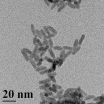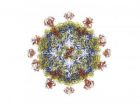(Press-News.org) Those solar panels on top of your roof aren't just providing clean power; they are cooling your house, or your workplace, too, according to a team of researchers led by Jan Kleissl, a professor of environmental engineering at the UC San Diego Jacobs School of Engineering.
In a study in an upcoming issue of the journal Solar Energy, Kleissl and his team published what they believe are the first peer-reviewed measurements of the cooling benefits provided by solar photovoltaic panels. Using thermal imaging, researchers determined that during the day, a building's ceiling was 5 degrees Fahrenheit cooler under solar panels than under an exposed roof. At night, the panels help hold heat in, reducing heating costs in the winter.
"Talk about positive side-effects," said Kleissl.
As solar panels sprout on an increasing number of residential and commercial roofs, it becomes more important to consider their impact on buildings' total energy costs, Kleissl said. His team determined that the amount saved on cooling the building amounted to getting a 5 percent discount on the solar panels' price, over the panels' lifetime. Or to put it another way, savings in cooling costs amounted to selling 5 percent more solar energy to the grid than the panels are actually producing— for the building researchers studied.
Data for the study was gathered over three days in April on the roof of the Powell Structural Systems Laboratory at the Jacobs School of Engineering with a thermal infrared camera. The building is equipped with tilted solar panels and solar panels that are flush with the roof. Some portions of the roof are not covered by panels.
The panels essentially act as roof shades, said Anthony Dominguez, the graduate student lead on the project. Rather than the sun beating down onto the roof, which causes heat to be pushed through the roof and inside the ceiling of the building, photovoltaic panels take the solar beating. Then much of the heat is removed by wind blowing between the panels and the roof. The benefits are greater if there is an open gap where air can circulate between the building and the solar panel, so tilted panels provide more cooling. Also, the more efficient the solar panels, the bigger the cooling effect, said Kleissl. For the building researchers analyzed, the panels reduced the amount of heat reaching the roof by about 38 percent.
Although the measurements took place over a limited period of time, Kleissl said he is confident his team developed a model that allows them to extrapolate their findings to predict cooling effects throughout the year.
For example, in winter, the panels would keep the sun from heating up the building. But at night, they would also keep in whatever heat accumulated inside. For an area like San Diego, the two effects essentially cancel each other out, Kleissl said.
The idea for the study came about when Kleissl, Dominguez and a group of undergraduate students were preparing for an upcoming conference. They decided the undergraduates should take pictures of Powell's roof with a thermal infrared camera. The data confirmed the team's suspicion that the solar panels were indeed cooling the roof, and the building's ceiling as well.
"There are more efficient ways to passively cool buildings, such as reflective roof membranes," said Kleissl. "But, if you are considering installing solar photovoltaic, depending on your roof thermal properties, you can expect a large reduction in the amount of energy you use to cool your residence or business."
If additional funding became available, Kleissl said his team could develop a calculator that people could use to predict the cooling effect on their own roof and in their own climate-specific area. To further increase the accuracy of their models, researchers also could compare two climate-controlled, identical buildings in the same neighborhood, one with solar panels, the other without.
INFORMATION:
The study was funded by a NASA Graduate Student Research Program fellowship. Kleissl's research is funded by the National Science Foundation, California Public Utilities Commission, the Department of Energy and the California Energy Commission. The authors thank the staff of the Powell Structural Lab, especially Andrew Gunthardt, for making the building available for the study.
Solar Panels Keep Buildings Cool
2011-07-19
ELSE PRESS RELEASES FROM THIS DATE:
New grant supports Hastings work on ethics of medical research with animals
2011-07-19
(Garrison, NY) The Esther A. and Joseph Klingenstein Fund awarded The Hastings Center a $159,000 grant to explore the ethical, scientific, and legal issues on using animals in medical research and on the prospects for using alternatives to animal models.
The project comes at a time when arguments about animal experimentation are changing in fundamental and profound ways. Scientific journals and some biomedical researchers are calling for increased public engagement and education about animal research. The longstanding view that one is either pro-medical progress or pro-animal ...
8-question survey can help predict post-traumatic stress disorder
2011-07-19
A simple eight-question survey administered soon after injury can help predict which of the 30 million Americans seeking hospital treatment for injuries each year may develop depression or post-traumatic stress, report Therese S. Richmond, PhD, CRNP, associate professor at the University of Pennsylvania School of Nursing, and her colleagues in General Hospital Psychiatry.
"Depression and PTSD exert a significant, independent, and persistent effect on general health, work status, somatic symptoms, adjustment to illness, and function after injury," the authors wrote, also ...
Chloroquine finding may lead to treatments for arthritis, cancer and other diseases
2011-07-19
In a study published recently in the journal Science Signaling Van Andel Research Institute (VARI) scientists demonstrate on the molecular level how the anti-malaria drug chloroquine represses inflammation, which may provide a blueprint for new strategies for treating inflammation and a multitude of autoimmune diseases such as arthritis, multiple sclerosis, and certain cancers.
Chloroquine is a widely used anti-malaria drug that inhibits the growth of parasites. For decades, chloroquine and its derivative amodiaquine have also been used as anti-inflammation drugs to treat ...
MadCap Software Raises the Bar on 30-Day Trial Software by Adding Free Gold Level Telephone Support
2011-07-19
Business users take advantage of trial software so they can understand exactly what they are purchasing, but they still have to buy support plans on blind faith. One company is changing that. MadCap Software, Inc. (http://www.madcapsoftware.com), the leader in multi-channel content authoring and a showcase company for Microsoft (NASDAQ: MSFT) Visual Studio and Microsoft XPS, today announced that every 30-day free trial version of its technical communications software now also comes with a 30-day free trial of MadCap's Gold Level technical support. Gold Level support during ...
Rapid venom evolution in pit vipers may be defensive
2011-07-19
Research published recently in PLoS One delivers new insight about rapid toxin evolution in venomous snakes: pitvipers such as rattlesnakes may be engaged in an arms race with opossums, a group of snake-eating American marsupials. Although some mammals have long been known to eat venomous snakes, this fact has not been factored into previous explanations for the rapid evolution of snake venom. Instead, snake venom is usually seen as a feeding, or trophic, adaptation. But new molecular research on snake-eating opossums by researchers affiliated with the American Museum of ...
Cadmium selenide quantum dots degrade in soil, releasing their toxic guts, study finds
2011-07-19
BUFFALO, N.Y. -- Quantum dots made from cadmium and selenium degrade in soil, unleashing toxic cadmium and selenium ions into their surroundings, a University at Buffalo study has found.
The research, accepted for publication in the journal Environmental Science and Technology, demonstrates the importance of learning more about how quantum dots -- and other nanomaterials -- interact with the environment after disposal, said Diana Aga, the chemistry professor who led the study.
Quantum dots are semiconductor nanocrystals with diameters of about 2 to 100 nanometers. ...
Attorney Howard H. Collens of Galloway and Collens, PLLC Speaks at Institute for Paralegal Education Training Seminar
2011-07-19
Howard H. Collens, attorney at the probate and estate planning law firm of Galloway and Collens, PLLC, spoke at a professional training seminar on The Probate Process From Start to Finish for Paralegals, sponsored by the Institute for Paralegal Education (IPE).
The seminar, which took place on June 7, 2011, aimed to increase the understanding and effectiveness of paralegals, legal assistants and legal secretaries during the legal process which may be required after a person dies. Howard H. Collens spoke about topics related to the probate process including the ethical ...
Juvenile diarrhea virus analyzed
2011-07-19
HOUSTON -- (July 18, 2011) -- Rice University scientists have defined the structure -- down to the atomic level -- of a virus that causes juvenile diarrhea. The research may help direct efforts to develop medications that block the virus before it becomes infectious.
The new paper by Professor Yizhi Jane Tao, postdoctoral researcher Jinhui Dong and their colleagues was published in today's online edition of the Proceedings of the National Academy of Sciences.
Tao's Rice lab specializes in gleaning fine details of viral structures through X-ray crystallography and computer ...
Registration Now Open for Nicaragua's Premier Investment Forum
2011-07-19
PRONicaragua recently announced the organization of the premier investment forum titled Nicaragua, Let's Grow Together!, which will showcase the country's sustainable growth in various economic sectors and its competitive advantages as an attractive destination for foreign direct investment (FDI).
The event will take place on August 16th and 17th in Managua, Nicaragua, and will focus on specialized sectors such as apparel, footwear, food processing and manufacturing, as well as world-class bilingual business process outsourcing (BPO) services. Participants will be coming ...
IBD, LCPD health research in 'Westie' dogs may hold answers to similar human diseases
2011-07-19
The Westie Foundation of America (WFA) announced
today preliminary findings in two major studies involving the health of West Highland White Terriers also
known as Westies. Findings in these and other studies of Westies and other dogs
may hold answers for similar human conditions like Inflammatory Bowel Disease (IBD). The studies are
jointly funded by the WFA and the AKC Canine Health Foundation (CHF).
In one study, researchers are looking at the role of a mucosal gene driving inflammation Canine IBD, a
chronic intestinal disorder that creates a bacterial-driven ...



